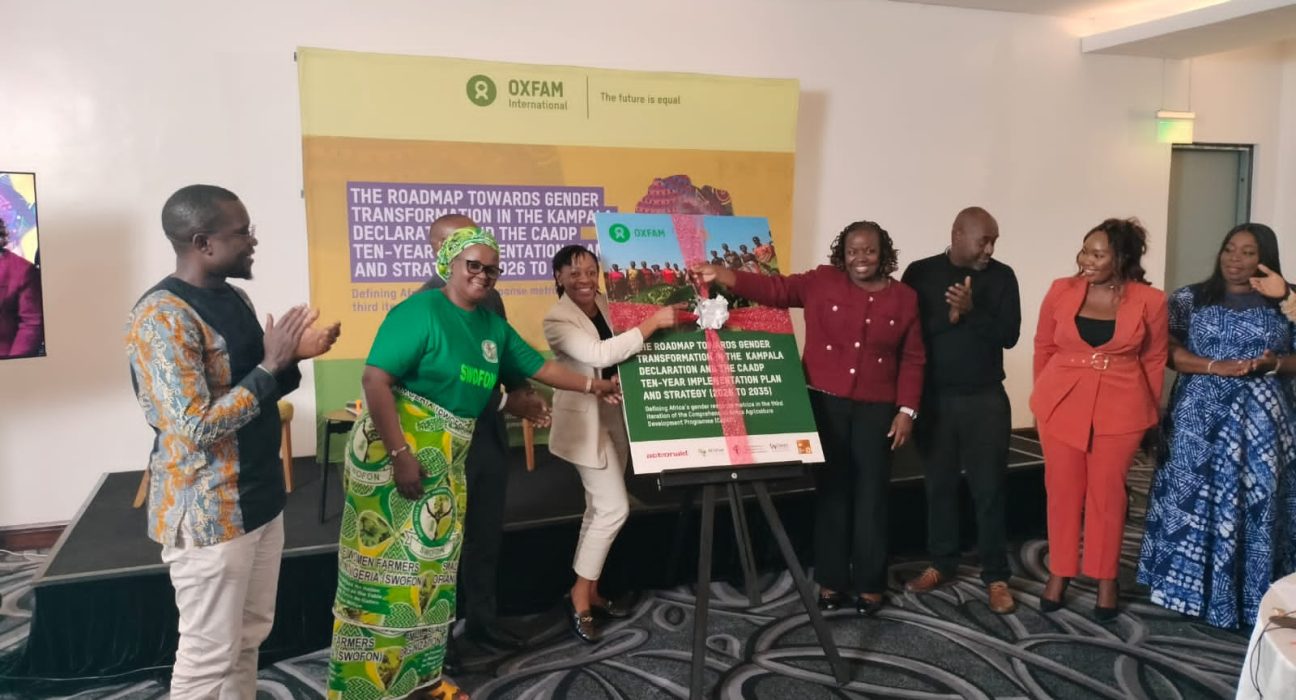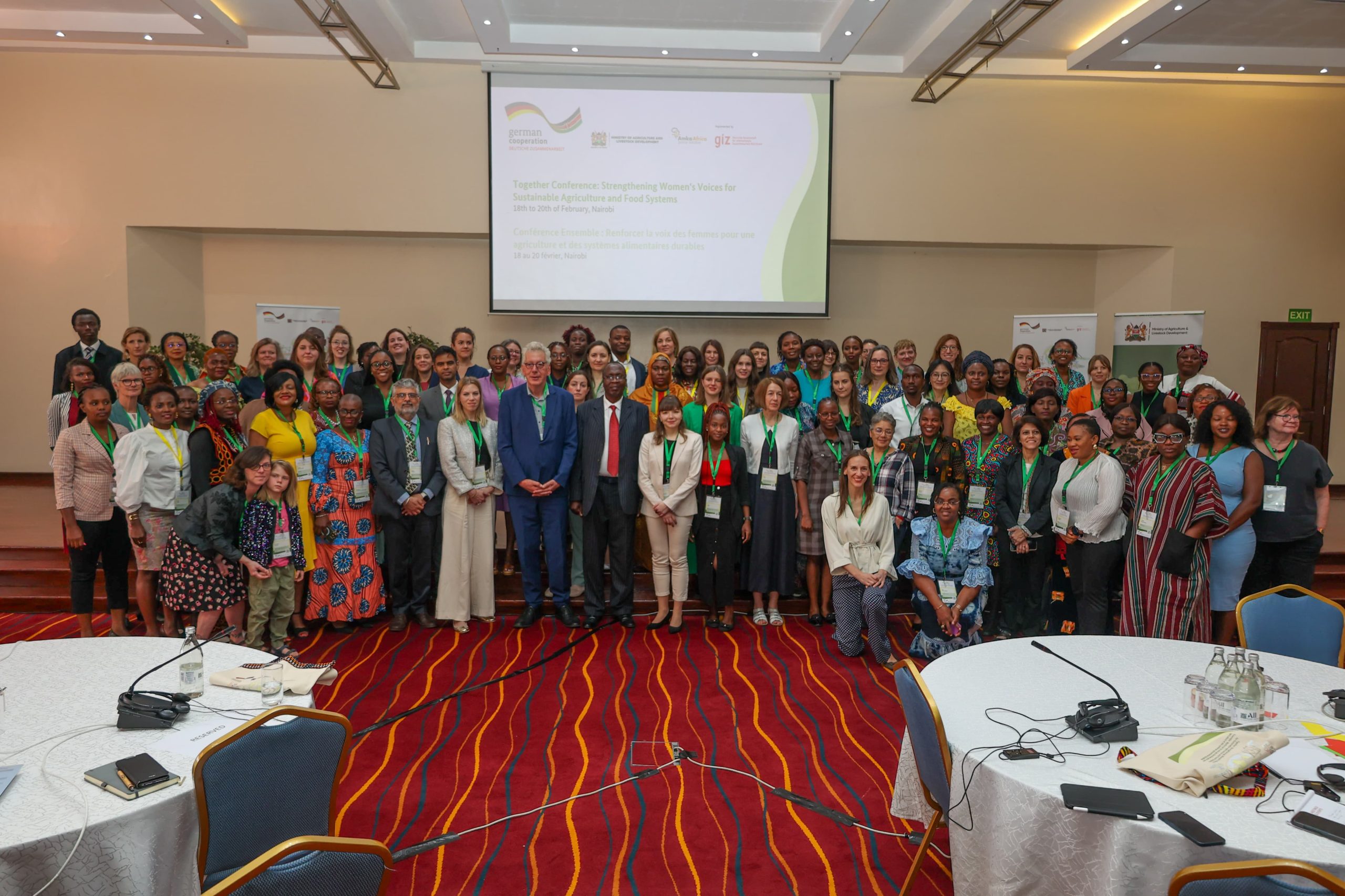By Eddah Waithaka
Today, the SDG2 Advocacy Hub, in collaboration with Oxfam, the African Union, and a coalition of technical partners, launched a framework aimed at shaping gender-responsive indicators within the Comprehensive Africa Agricultural Development Program (CADEP).
The framework, a result of three months of intensive collaboration, seeks to ensure that the new CADEP strategic plan for 2026-2035 addresses the unique needs of women, youth, and marginalized groups across Africa.
The event, held in Nairobi, brought together key stakeholders, including grassroots women’s organizations, international development partners, and government representatives, to discuss the critical role of gender inclusivity in transforming Africa’s agricultural sector.
A Call for Gender-Responsive Agriculture
Nanzala Lazarus, representing the SDG2 Advocacy Hub, emphasized the importance of tracking progress to ensure women’s access to resources.
“Success will look like when women are accessing resources, but it’s difficult to know how this is happening without indicators to track it,” he said.
“This brief is crucial because it helps us establish those indicators, ensuring we can monitor investments in agriculture and women’s empowerment.”
Lazarus highlighted systemic barriers such as land ownership and the intersection of climate change and conflict, particularly in regions like Somalia.
“Land is a key resource in agriculture, and if women, who produce most of our food, do not own it, we will never end hunger,” he stated.
He called on governments to enforce legislation and allocate resources to address these challenges.
Oxfam’s Role in Driving Change
Wanjiko Wanjohi, Senior Gender Advisor at Oxfam, outlined the collaborative effort behind the brief. “Oxfam, alongside the African Union, FEMNET, Action Aid, and other partners, has worked tirelessly to ensure the new CADEP framework is gender-responsive,” she said.
Wanjohi stressed the need to address evolving issues such as the climate crisis, which disproportionately affects women in agriculture.
“Women are not just food producers; they are retailers, distributors, and consumers. The climate crisis has disrupted every aspect of the food system, and women bear the brunt of it,” she explained.
She also called for African governments to move beyond rhetoric and allocate specific budgets for gender-responsive initiatives.
“We need to see actual budget lines supporting these activities,” she said.
Government Commitment to Gender Inclusivity
Jacqueline Makokha, Director of the Gender Mainstreaming Directorate in Kenya’s State Department for Gender and Affirmative Action, underscored the government’s role in addressing gender barriers in agriculture.
“Women face systemic, cultural, and economic barriers, including limited access to land and financing,” she said.
Makokha highlighted Kenya’s progressive policies, such as affirmative action funds and procurement quotas for women, youth, and persons with disabilities.
“We have a strong policy framework, but collaboration with non-state actors is essential for effective implementation,” she added.
Grassroots Women’s Voices
Stephanie Kanyingi, Program Manager at GROOTS Kenya, emphasized the importance of including grassroots women in the conversation.
“Women are the largest labor force in agriculture, yet they face multiple barriers, from land ownership to unpaid care work and gender-based violence,” she said.
Kanyingi also highlighted the role of men in driving gender inclusivity. “We have men for women champions who understand the importance of women’s participation in agriculture and leadership,” she noted.
The framework represents a multi-stakeholder, multi-geographical effort to ensure that the new CADEP framework reflects the realities of African women in agriculture.
By aligning with continental commitments such as the Maputo Protocol and the African Union Gender Strategy, the brief aims to create a truly Afrocentric approach to gender-responsive agriculture.
As the continent prepares for the next decade of CADEP implementation, the launch of this brief marks a significant step toward ensuring that women, youth, and marginalized groups are not left behind in Africa’s agricultural transformation.
Read More Stories At : https://africawatchnews.co.ke/







